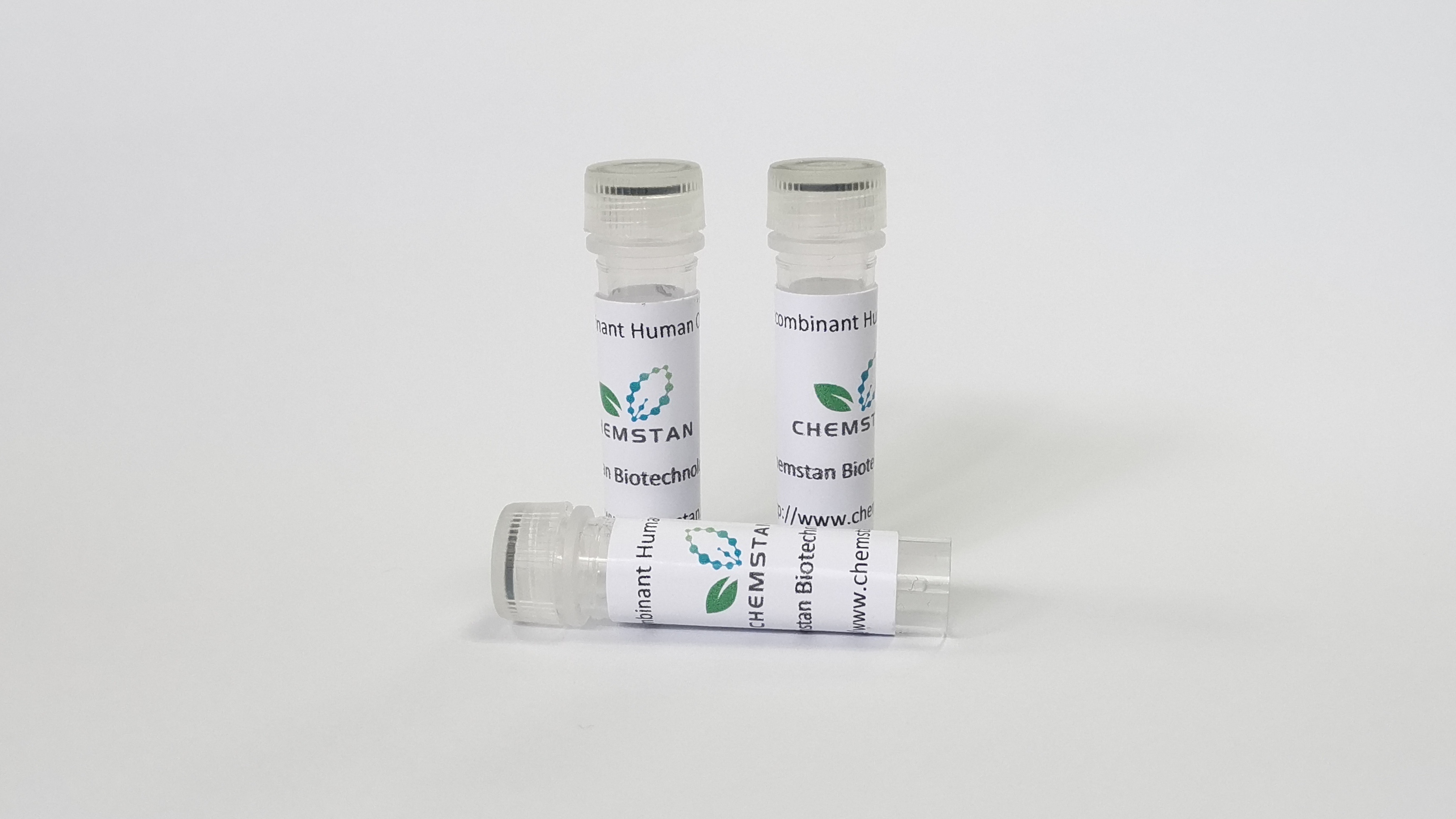
瀏覽量: 59
- 產(chǎn)品名稱: Recombinant Human CD1d protein
- 產(chǎn)品貨號: CSP00528
- 貨期: 現(xiàn)貨
- 價(jià)格與訂購: 1800
- 數(shù)量:
庫存: 100
- 規(guī)格: 50μg 100μg 1mg
- 產(chǎn)品信息
- 如何訂購
概述(Summary)
英文全稱
Recombinant Human CD1d protein
純度(Purity)
>90% as determined by SDS-PAGE
內(nèi)毒素(Endotoxin level)
Please contact with the lab for this information.
蛋白構(gòu)建(Construction)
A DNA sequence encoding the human CD1d (Glu20-Ser301) was fused with His tag
Accession #
P15813
表達(dá)宿主(Host)
E.coli
種屬(Species)
Homo sapiens (Human)
預(yù)測分子量(Predicted Molecular Mass)
33.42 kDa
制劑(Formulation)
Supplied as solution form in PBS pH 7.5 or lyophilized from PBS pH 7.5.
運(yùn)輸方式(Shipping)
In general, proteins are provided as lyophilized powder/frozen liquid. They are shipped out with dry ice/blue ice unless customers require otherwise.
穩(wěn)定性&儲存(Stability &Storage)
Use a manual defrost freezer and avoid repeated freeze thaw cycles.
Store at 2 to 8 °C for one week .
Store at -20 to -80 °C for twelve months from the date of receipt.
Store at 2 to 8 °C for one week .
Store at -20 to -80 °C for twelve months from the date of receipt.
復(fù)溶(Reconstitution)
Reconstitute in sterile water for a stock solution.A copy of datasheet will be provided with the products, please refer to it for details.
背景(Background)
背景介紹
The cluster of differentiation (CD) system is commonly used as cell markers in immunophynotyping. Different kinds of cells in the immune system can be identified through the surface CD molecules which associating with the immune function of the cell. There are more than 32 CD unique clusters and subclusters have been identified. Some of the CD molecules serve as receptors or ligands important to the cell through initiating a signal cascade which then alter the behavior of the cell. Some CD proteins do not take part in cell signal process but have other functions such as cell adhesion. Cluster of differentiation 1 (CD1) is a member of CD system. It's a family of glycoproteins expressed on the surface of various human antigen- presenting cells which are implicated in the presentation of lipid antigens to T-cells. Due to the different lipid anchoring, the CD1 family is classified into two groups: group1 (CD1a-c) and group2 (CD1d). CD1d with lipid antigens activate NK T-cells which rapidly produce Th1 and Th2 cytokines after been activated.
分子別名(Alternative Names)
Antigen-presenting glycoprotein CD1d,R3G1,CD1d.
Note
For research use only .

 地 址:
地 址: 產(chǎn)品銷售:
產(chǎn)品銷售: E - mail :
E - mail : 郵 編:
郵 編:
 Amily
Amily


